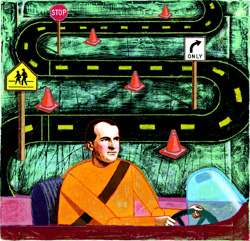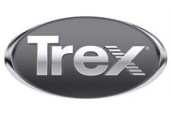Allied pays drivers $200 per quarter when the branch they work for gets through that period without a preventable driving accident or an OSHA-recordable injury. (Garrone says the bonus is reduced to $100 if there’s one accident and to zero if there’s two.) Typically, about 30 percent of Allied’s branches receive this driver payout in a given quarter. Allied also has a veteran driver “mentor” at each branch who works with new hires and retrains drivers, and who can earn $300 per quarter if trainees have no recordable accidents.
Stock pays drivers extra cash for good performance, too, and offers other incentives that double as training, says Cleaver, such as bringing good drivers along on trips to show them where vehicle parts are made or allowing them to enroll in skid-prevention courses.
Jobsite Precautions
Driving isn’t the only thing that poses a safety risk to dealers’ drivers. Material handling can be just as perilous, which is why Aurora, Ill.–based Alexander Lumber, whose 43 locations are supported by 165 drivers, instructs its drivers about cargo securing, pre-trip vehicle inspection, and maintenance, says Joe Weber, Alexander’s vice president and general manager. Raymond Building Supply now sends up to three people on jobsite deliveries to unload a truck’s freight, both to manage hand-carry loads if needed and to help establish and maintain a safe unloading zone. Wolf “spends a lot of time” training drivers how to handle building products, some of which are loaded and unloaded by hand.
Deliveries have the potential for becoming hazardous when products like roofing and siding need to be placed above ground level. Allied and Meek’s have strict rules about their delivery crews wearing “fall-from” equipment such as harnesses and inertia reels. “Anyone who violates this is terminated,” says Garrone of Allied. Allied also teaches “basic ergonomics” to drivers who also might be called upon to unload and hand-carry dry-wall—which when wrapped into two sheets weighs a combined 120 pounds. (In 2004, the last year for which data are available, Allied lowered its “experience modification rate,” a measure of accidents and injuries insurers use to calculate a company’s premiums, by 21 percent.)
Meek’s doesn’t allow its drivers to climb up on a truck’s bed to unload inventory. And even when they’re “dumping” product at the curbside or jobsite, Meek’s drivers must follow a pre-dump checklist that Harper says prohibits them from unloading at a home site if a parent isn’t holding a child. “Kids love trucks and will run after them,” he says. —John Caulfield is a contributing editor for PROSALES.



